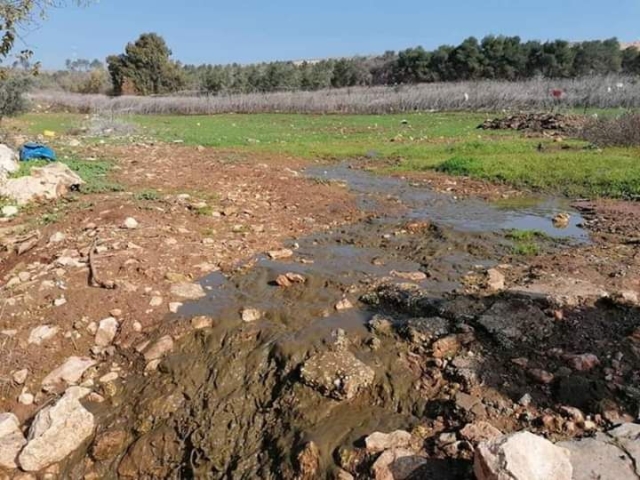In a recent interaction with journalists from “Israel Hayom”, Roey Assaig, an officer from the Israeli Civil Administration overseeing Judea and Samaria, emphasized the growing concern of water theft and illicit water drilling in the territories managed by the Palestinian Authority. Assaig stressed that these unauthorized activities not only undermine the integrity of the water distribution system but also deprive legitimate Palestinian consumers of their rightful water supplies.
Although the water issue in Judea and Samaria might not make frequent headlines, especially given other pressing matters such as terrorism and unauthorized construction, its implications are indeed significant. It affects the lives of millions, both within Israel and in the Palestinian territories. The unfortunate reality is that amidst the broader political and security challenges, this vital resource concern seems to have been overlooked.
The "limiting access to water" rhetoric is yet another tactic used by anti-Israel NGOs in their misinformation campaigns.
— NGO Monitor (@NGOmonitor) August 6, 2023
Illegal Palestinian drilling, PA non-cooperation on water and waste projects, and inefficient agricultural practices are often ignored.
See our report for… https://t.co/PjpT4bG0QO
Considering the population distribution, Judea and Samaria are inhabited by approximately 3 million people, comprising 500,000 Israelis and 2.5 million Palestinians. Astonishingly, the water supply for this vast populace is managed by merely four employees from the Civil Administration. In contrast, the Water Authority catering to regions outside the West Bank boasts a workforce of over 200.
There is, however, a silver lining. Over the past three years, collaboration between Israelis and Palestinians has seen a resurgence, particularly in joint committees tasked with overseeing the water sector. Annually, Palestinians receive about 84 million cubic meters of water, a quantity thrice that which was agreed upon in the Oslo Accords.
Yet, challenges persist. The Civil Administration is increasingly alarmed by the rampant water thefts, which manifest in two distinct ways: organized theft by criminal elements and unauthorized drilling spearheaded by the Palestinian Authority. The latter's intention, it seems, is to establish an autonomous water infrastructure. These illicit drilling activities pose a grave risk as they severely compromise the integrity of the groundwater, particularly the mountain aquifer, which serves as Israel's primary groundwater reserve.
This is not only a lie but a blood libel. Israel repaired water lines because of illegal Palestinian drilling which endangers the aquifers that provide water TO PALESTINIANS.
— Emily Schrader - אמילי שריידר امیلی شریدر (@emilykschrader) July 31, 2023
Shame on you! https://t.co/3JFHZ5JP6S
Addressing Palestinian grievances about perceived water shortages and alleged biases favoring Israeli settlements, Assaig was categorical in his rebuttal. He clarified that while the Palestinians possess their water sources, they also receive supplementary supplies from the Israeli firm, Mekorot, at mutually agreed locations.
However, the unauthorized drilling activities conducted by the Palestinian Authority present a clear and present danger. The Israeli Civil Administration has identified numerous illegal wells that jeopardize groundwater quality. Assaig elucidated the magnitude of the threat, explaining that contamination from even a minimal spill could jeopardize numerous Israeli freshwater sources, underscoring the dire need for immediate corrective measures.


